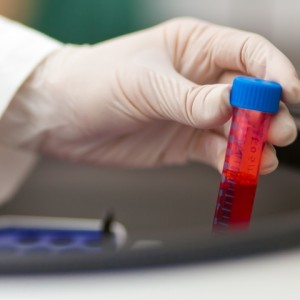 A study from the University of Colorado Cancer Center was recently published in the Molecular Cancer Therapeutics journal showing that only 1 percent of triple-negative breast cancer (TNBC) cells in a tumor have to be “androgen-receptor-positive” for the patient to benefit from anti-androgen based therapies.
A study from the University of Colorado Cancer Center was recently published in the Molecular Cancer Therapeutics journal showing that only 1 percent of triple-negative breast cancer (TNBC) cells in a tumor have to be “androgen-receptor-positive” for the patient to benefit from anti-androgen based therapies.
Currently, there are no FDA-approved targeted therapies to address TNBC. However, clinical trials are underway and reveal promising preliminary results to fight this type of cancer with anti-androgen-receptor based therapies that express a higher amount of androgen-receptor-positive cells.
“What we’re showing is that the threshold for benefit from anti-androgen-receptor therapies in triple-negative breast cancer may be far lower than we previously thought. This is an extremely optimistic finding for many people who have been without options for targeted cancer therapy,” said Valerie Barton from the CU Cancer Center investigator Jennifer Richer and first author of the study.
TNBC has the worst 5 year survival rate of all breast cancers and is characterized by lack of genetic or hormone drivers; their growth is not related with hormones such as estrogen or progesterone and is not related with the HER2 gene. Since its driver is not known, there is currently no potential drug target. In this study, researchers wanted to test androgen receptors as additional drivers that can be targeted in breast cancer.
[adrotate group=”3″]
“We’re getting closer to being able to call some triple-negative breast cancers, androgen-receptor-positive breast cancers. And we may have to start referring to the remaining triple-negative breast cancers that are completely without androgen receptors as quadruple-negative breast cancers,” Dr. Barton explained in a press release.
TNBC cells were treated with Enzalutamide, an anti-androgen-receptor drug approved by the FDA to address prostate cancer. Enzalutamide is active against “luminal” TNBC cells that usually present abundant androgen receptors. Dr. Barton and his team assessed Enzalutamide to fight non-luminal TNBC cell lines that express lower levels of androgen receptors.
“Even in these cells and in mouse models of tumors with low percentage of androgen receptor positive breast cancer cells, we observed that Enzalutamide was significantly effective at reducing proliferation, growth, migration and invasion of cancer cells. Our results suggest that anti-androgen receptor therapy may benefit a larger percentage of triple negative breast cancers than previously thought,” Dr. Barton concluded.

